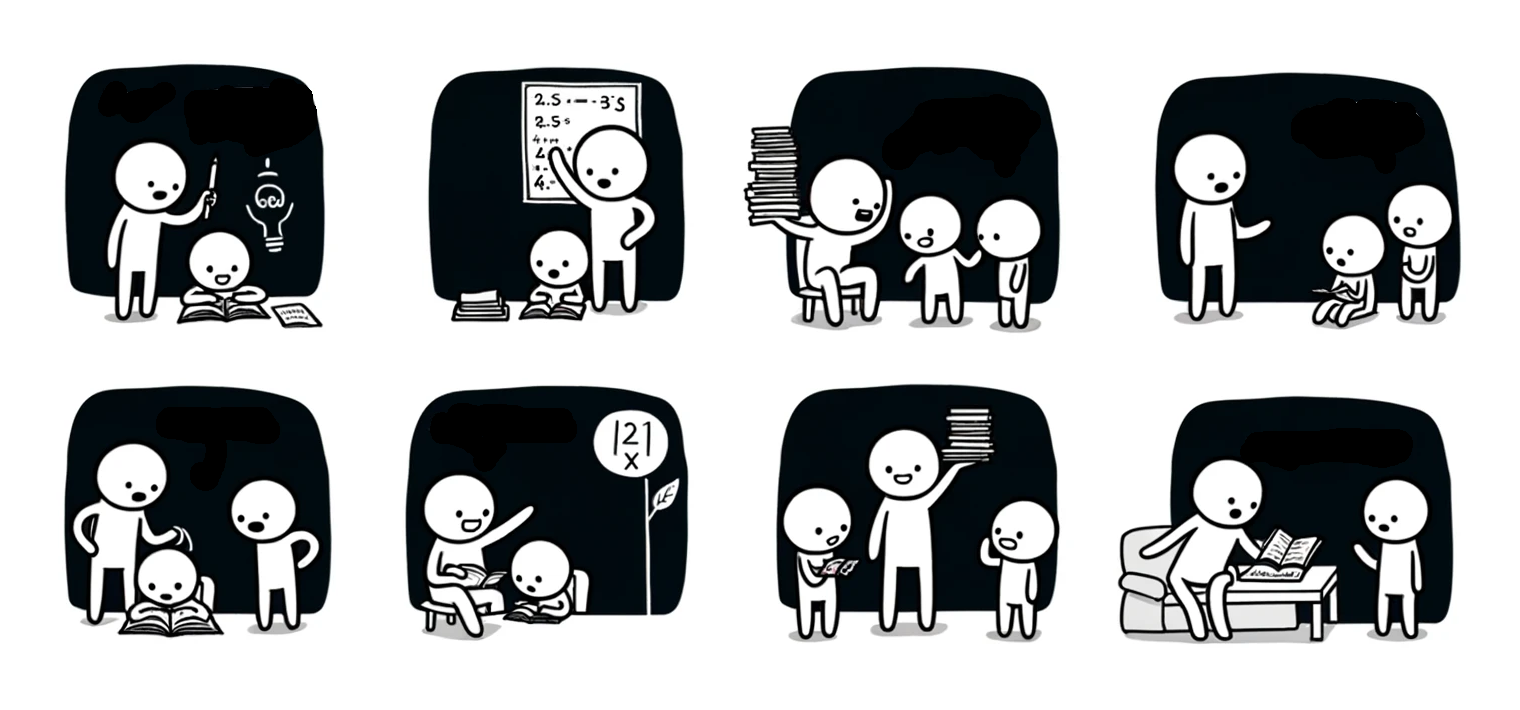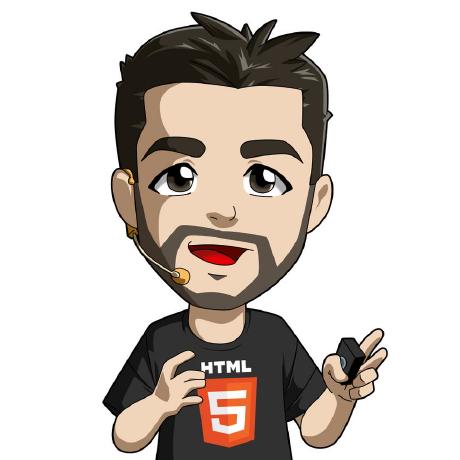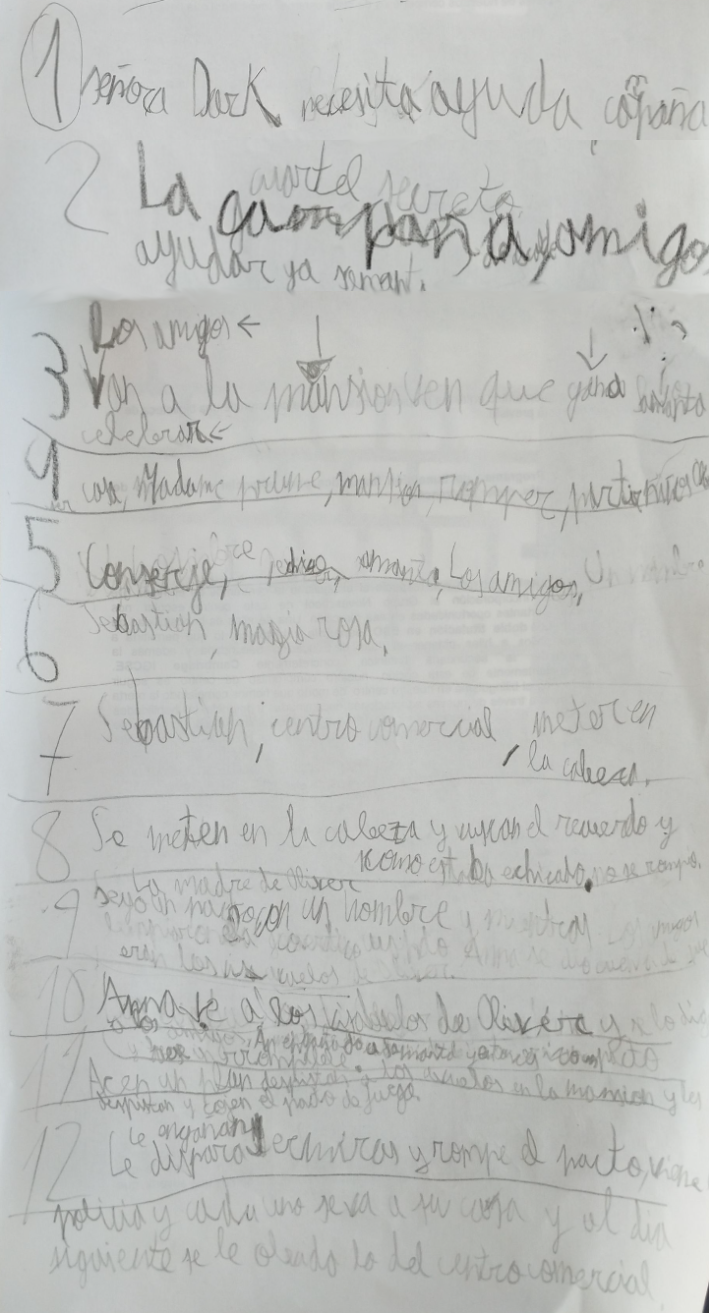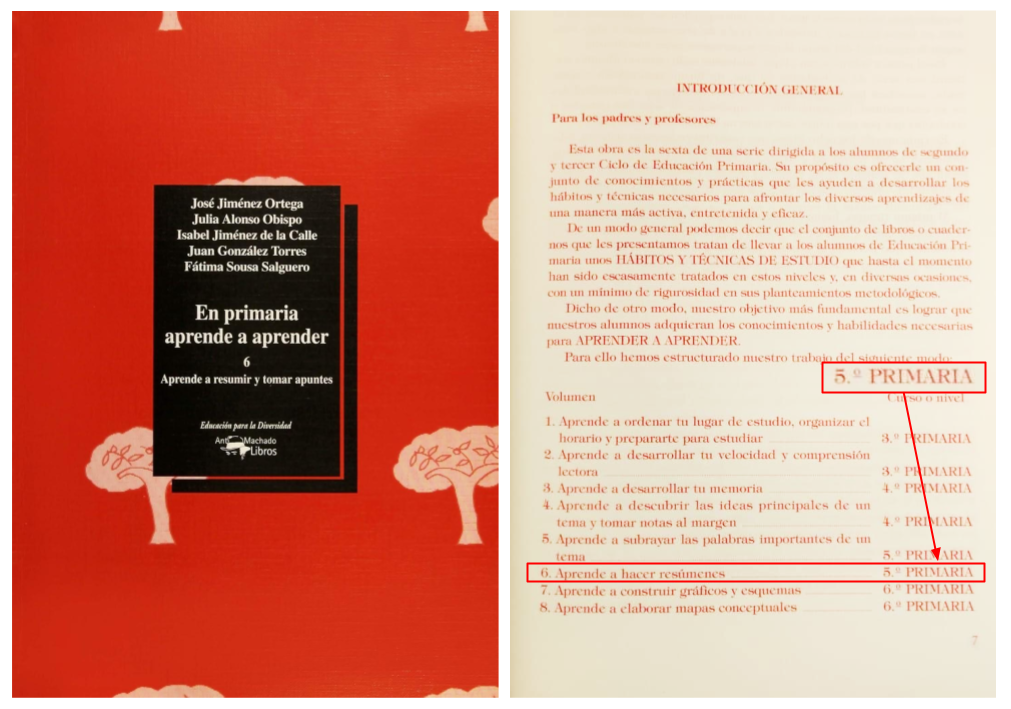It's been a long time since I wrote about these topics...
Specifically since I launched the family blog attempt (in 2018), although I hope to find time another day to share these experiences.
The truth is that I would like to share how I am trying to get involved in my son's school. Through the AMPA and other ways, and the initiatives I have recently participated in there. For example:
- A talk to 3rd and 4th-year ESO students (14 to 16 years old) at a career guidance event, where I shared my experience with them (starting from when I was their age until today).
- A discussion with Gabriel Zabal, for parents with children over 10 years old, mainly focused on the risks associated with new technologies, using social networks as a guiding thread but touching on many other topics.
- Or my experience participating with them in the sports day championships.
If you are interested in these topics, let me know in the comments (to prioritize it) 😉.
BTW, in case you need it, here is a table of course equivalencies between countries:
| Spain | USA | Canada | Ireland | United Kingdom | France | Germany |
|---|---|---|---|---|---|---|
| 1st ESO | Grade 7 | Grade 7 | 1st Year | Year 8 | Collège 5e | 7 Klasse |
| 2nd ESO | Grade 8 | Grade 8 | 2nd Year | Year 9 | Collège 4e | 8 Klasse |
| 3rd ESO | Grade 9 | Grade 9 | 3rd Year | Year 10 | Collège 3e | 9 Klasse |
| 4th ESO | Grade 10 | Grade 10 | 4th Year | Year 11 & GCSE | Seconde | 10 Klasse |
| 1st Bachillerato | Grade 11 | Grade 11 | 5th Year | Year 12 | Première | 11 Klasse |
| 2nd Bachillerato | Grade 12 | Grade 12 | 6th Year | Year 13 & A Levels | Terminale | 12 Klasse |
Those who know me know that I am used to giving training and talks to adults, but helping a 7-year-old child learn to study... is something totally different, and it is proving to be quite a challenge 😅.

So today I want to talk about my experience trying to help my son José summarize books, how I have come to feel frustrated by setting my expectations too high, and the conclusions I have reached.
The context
To give you some background:
- Every two weeks he brings a book from school home.
- These are books that himself and his classmates have brought to class, usually bought by the parents.
- They are asked to fill out a worksheet after reading where they have to make a summary of about half a page.
- These books are like Anna Kadabra, Pokémon, Marcus Pocus, Dog Man, ... which mostly have +100 pages.
- Lastly, they have the "reading challenge" (optional), where each month they are encouraged to choose another book that meets certain characteristics. For example:
- In January, one with a beautiful cover
- In February, one with illustrations
- In March, another with a number in the title
- In April, one turned into a movie
- In May, one with an author from your country
- In June, a graphic novel/comic.
Although most books are recommended for children his age, in some ways it surprises me:
- The length of the books, especially for the pace at which they have to read. Although I suppose it is good because it requires them to read almost daily a chapter, which will help them develop a reading habit.
- The vocabulary contained in the books, sometimes quite advanced, which is good, I suppose.
Here's a talk (in Spanish) that my good friend Jorge Barrachina recommended to me recently, Gregorio Luri's talk "El arte de leer y el gusto por la lectura".
But I would like to know if I am the only one or if other families also have similar feelings. I encourage you to tell me in the comments 😜.
The frustration
It all starts when after several weeks, after reading my son's summaries looking for spelling mistakes, I realize that I don't understand the summaries very well. So, with the idea of helping him improve them, I start asking him questions, to see if I can understand the plot better, but still I'm missing characters, or clarifications, or anything else that makes it hard for me to understand the story.
In the end, both his mother and I decided that the best thing would be for one of us to also read the book, so we could help him because otherwise, how would we know if he had missed something important or not?
Well... something that initially didn't seem complicated, I realized was more difficult than I thought 😅.
One of the things I have noticed while reading the books is that every one or two pages, there are words that I suspect he doesn't know, like exhalation, arrogant, seep, utopian, electoral campaign, ..., so every time I read one of his books, I ask him to verify.
Indeed, many he doesn't know, and I always tell him:
José, when you don't understand something...ask what it means! Because if you don't, you're probably not understanding the story well.
I always do it... even when I'm reading Mikecrack stories to him and his brother in bed before sleeping, but no matter how much I repeat it... there comes a time when he stops asking.
But well, once the entire book is read and all the vocabulary is reviewed, we move on to the summary. There, my method consists of reminding him that every story has:
- A beginning, where something usually happens that disrupts the order and:
- Creates a problem to solve.
- Is the trigger for an adventure.
- Then there's the development (or middle), which is what is told in most of the book.
- Then there's an end (or conclusion), where the situation is resolved, or the story ends, and everything returns to normal.
- And besides this, there are some characters more important than others, without whom the story could not be told well.
And then I ask him to, using those four elements, tell me what happens at the beginning, the most important things that happen before reaching the end, how everything is resolved and returns to normal, and while doing that, explain who each of the characters are.
Well, as you can imagine, despite all attempts and trying to give him hints, because to be honest, even I sometimes find it hard to summarize... I can't get the summary to meet my expectations 😅, which ends in my frustration 😡, for which I then have to apologize to him, explaining that it is not his fault but my own frustration for not being able to help him 😞.
Asking for help from the teacher
So I said to myself, "OK Raúl, you're not doing it right, ask the teacher for help!" (and that's what I did).
After talking to her, she gave me some advice. Since the books are quite long, she told me to ask José to write down "the main ideas" of each chapter on a separate sheet, and then with all of them, make the summary.
Here are the notes we made from the book Anna Kadabra 13. Danger at the Mansion:
The problem is that when taking notes and making the summary, he sometimes missed important things, like the fact that the supposed villain of the book wasn't so bad (but had been deceived), or he focused on things that caught his attention but weren't relevant, like an anecdote about a secondary character.
But of course... he's a child, how do I explain to him what is a main character or event and what is a secondary one?
I tell him: "if you remove that part of the story or character, can you still understand the story? Is it still the same?" and he says something like... "dad, if you remove anything... the story is no longer the same", and he's not wrong 🤣. So in the end, on more than one occasion, I end up telling him what I THINK is important and why.
Asking for help from my mother
In the end, I turned to my mother, because besides being my mother, she was my language teacher, and the teacher of many children in a school in Nerja.
She recommended a book that seemed promising: "In primary school, learn to learn - 6: Learn to summarize and take notes", and I, as an obedient son (sometimes 😜😜), bought it.
As you can see on Amazon, the book was published in 2001 (more than 20 years ago!), but what caught my attention was what I saw in the introduction:
Seeing that "in the past" it wasn't until the age of 10 that summaries were learned reassured me. This, along with the last meeting with my son's teacher, who again hinted that I shouldn't be so demanding with the summaries, I've decided to relax and see it from another perspective 🧘💆.
My conclusions
I have to get used to the fact that the summary is not that important (for now). What is important is that my son:
- Keeps enjoying reading.
- Continues developing his reading speed and comprehension.
- Learns vocabulary.
- And above all, doesn't start disliking reading because after... there's going to be a time of "dad's anger" ;(.
So now what I've asked him to do is that when he reads a book:
- Have a blank sheet of paper at hand.
- Write down all the words he doesn't know.
- And ask Alexa (Echo Show) what they mean, and write them down. I was going to buy him a traditional dictionary... but honestly, I think this way will be faster and he will use it more.
Because from now on, when I read the book, I will see if he has done "his homework" and taken notes, because now instead of putting so much emphasis on the summary, we will try to get him into the habit of looking up what he doesn't understand, so he can learn vocabulary and better understand what he reads.
How do you see it? Any advice? 🙂.


